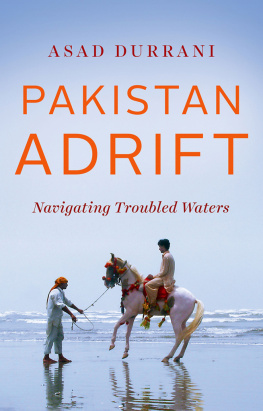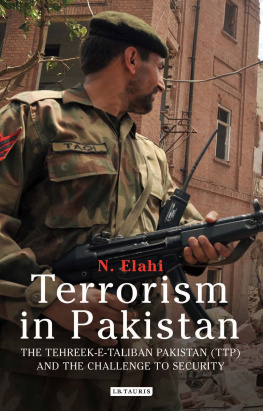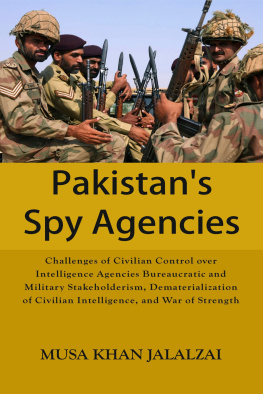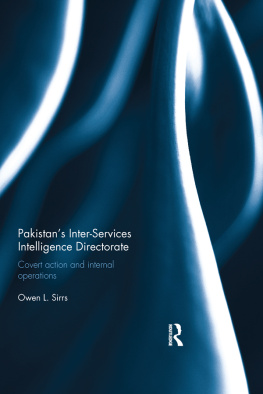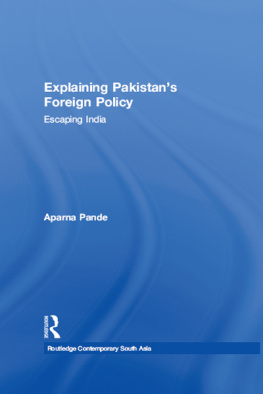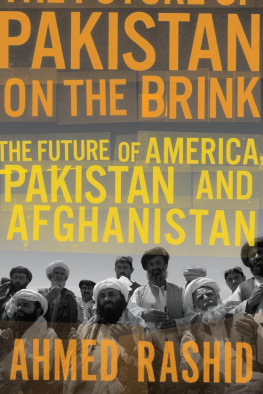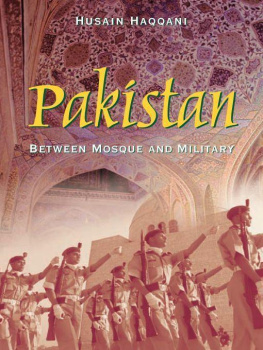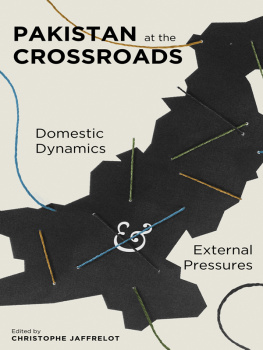PAKISTAN ADRIFT
ASAD DURRANI
Pakistan Adrift
Navigating Troubled Waters

HURST & COMPANY, LONDON
First published in the United Kingdom in 2018 by
C. Hurst & Co. (Publishers) Ltd.,
41 Great Russell Street, London, WC1B 3PL
All rights reserved.
Asad Durrani, 2018
Foreword Anatol Lieven, 2018
Printed in India
Distributed in the United States, Canada and Latin America by Oxford University Press, 198 Madison Avenue, New York, NY 10016, United States of America.
The right of Asad Durrani to be identified as the author of this publication is asserted by him in accordance with the Copyright, Designs and Patents Act, 1988.
A Cataloguing-in-Publication data record for this book is available from the British Library.
EISBN: 9781787381599
www.hurstpublishers.com

I drift a little with every fast current, but have yet to find my direction.
Mirza Asad-ullah- Khan Ghalib
Nineteenth-century Indian poet
CONTENTS
PART ONE
THE VIEW FROM A VANTAGE POINT
PART TWO
IN HINDSIGHT
PART THREE
THE OVERVIEW
| AJK | Azad Jammu & Kashmir (the part administered by Pakistan) |
| AIG | Afghan Interim Government (the Mujahedeen government in exile, formed after the Soviet withdrawal from Afghanistan) |
| ANP | Awami National Party (ethnically Pashtun and based in Pakistans North-Western province) |
| BB | Benazir Bhutto (Prime Minister of Pakistan, 198890 and 199396) |
| BSA | Bilateral Security Agreement (between the US and Afghanistan signed in 2014) |
| CGS | Chief of the General Staff |
| CMI | Corps of Military Intelligence |
| COAS | Chief of the Army Staff |
| CJCSC | Chairman Joint Chiefs of Staff Committee |
| CSCE/OSCE | Conference (Organisation) of Security and Cooperation in Europe. |
| CSD | Cold Start Doctrine |
| DCC | Defence Committee of the Cabinet |
| DGMI | Director General of Military Intelligence |
| DGMO | Director General of Military Operations |
| DGISI | Director General of Inter-Services Intelligence |
| DL | Durand Line (Pak-Afghan border, established after an 1893 memorandum of understanding between Mortimer Durand of British India and Afghan Amir Abdur Rahman Khan). |
| FWO | Frontier Works Organisation (a civil works agency of the Pakistan Army) |
| GDR | German Democratic Republic (the former East Germany) |
| GIK | Ghulam Ishaq Khan (President of Pakistan 198893) |
| IB | Intelligence Bureau |
| IHK | Indian-Held Kashmir |
| IPI | Iran-Pakistan-India (a pipeline project, now on hold, and very likely to drop the second I) |
| ISI | Inter-Services Intelligence |
| ISPR | Inter-Services Public Relations |
| JATM | Joint Anti-Terror Mechanism |
| JIC | Joint Intelligence Committee |
| JCSC | Joint Chiefs of Staff Committee |
| JKLF | Jammu & Kashmir Liberation Front |
| KKH | Karakorum Highway |
| NDC/NDU | National Defence College (now a University) |
| NGG | The New Great Game |
| NLC | National Logistics Cell |
| MFA | Ministry of Foreign Affairs |
| MI | Military Intelligence |
| MNS | Mian Nawaz Sharif |
| MOU | Memorandum of Understanding |
| MQM | Muhajir (now Mutahidda) Qaumi Movement |
| NDS | National Directorate of Security (Afghan Intelligence Service) |
| NDC | National Defence College |
| NLC | National Logistics Cell |
| NRO | National Reconciliation Ordinance (promulgated by President Musharraf in 2007 to provide immunity from prosecution to eminent politicians against corruption) |
| NSAG | National Security Advisory Group |
| PM | Prime Minister |
| PML | Pakistan Muslim League |
| PML (N) | Pakistan Muslim League, Nawaz (Sharif) Faction |
| PMO | (Indian) Prime Ministers Office |
| POF | Pakistan Ordnance Factories |
| PPP | Pakistan Peoples Party |
| SCO | Shanghai Cooperation Organisation |
| THK | Tehreek-e-Hurriyat-e-Kashmir (formed by resistance parties in IHK in 1991) |
| VCOAS | Vice Chief of Army Staff |
It is an honour to be asked to write the foreword to this book by Pakistans foremost military intellectual. General Asad Durranis combination of memoirs and reflections is among the most important works to have emerged from the Pakistani Army since independence. Its dry wit and wealth of anecdote also makes it a pleasure to read, and its wryly perceptive take on the failings of both civilian and military government in Pakistan distinguishes it from most self-serving memoirs by former leading figures. General Durrani was in the best of positions to observe those failings. As a junior officer, he served in the wars of 1965 and 1971; as a senior officer, he was commander of both Military Intelligence and Inter-Services Intelligence. He worked in senior roles during the governments of Zia ul Haq, Benazir Bhutto and Nawaz Sharif, and casts a cold eye on all of them.
This is a highly enlightening, necessary, but also, in many ways, depressing memoir. Writing on Pakistanby both Pakistanis and Westernershas a longstanding tendency to veer wildly between prophecies of imminent doom and belief in miraculous salvations. For liberal Pakistanis and most Westerners, this salvation was supposed to come from some mixture of democracy and obedience to the latest ideas of the World Bank. We were told repeatedly that if Pakistan underwent a regular transition from one elected government to another, then it would provide some sort of magic key that would unlock the countrys hidden capacity for political, social and economic reform. In 2013, the first such transition occurredand no miracle has taken place. Equally, the hopes of many Pakistanis that military government would transform the state have been repeatedly disappointed.
On the other hand, the portrayal by so many analysts of Pakistans imminent demise have also been repeatedly proved false. Despite all its weaknesses, Pakistan has proved extraordinarily resilient in the face of the many dire challenges that it has faced. Contrary to the great majority of expert predictions, the army and state eventually defeated the Pakistani Taliban insurgency that began in 2004 and for a while seemed to be sweeping more and more of the country. Terrorism, of course, remains a permanent dangerbut that, alas, is now true of many countries. Asad Durranis book provides some of the clues to the sources of this apparently mysterious resilience.
Among these has been the unity and discipline of the Army. General Durranis book is not propaganda for another military takeover of government. On the contrary, as well as highlighting the terrible mistakes of particular military rulers, it is a soldiers warning of how military rule both fails to solve problems and corrupts the soldiers. As Durrani writes:

